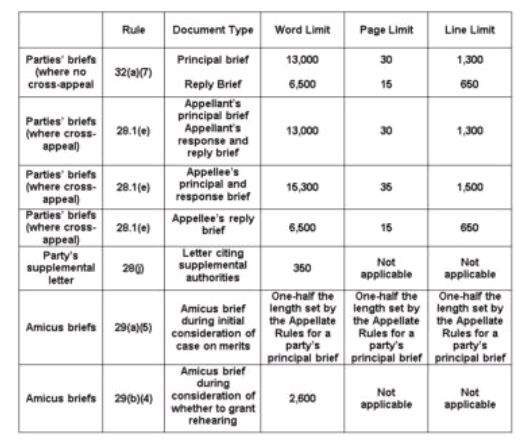On December 1, 2016, significant amendments to the Federal Rules of Appellate Procedure took effect. The amendments apply to all appeals commenced on or after December 1, and "insofar as just and practicable, all proceedings then pending."
Existing page limits are changed to word counts for petitions for permission to appeal and responsive briefs, petitions for mandamus or other extraordinary writs and responsive briefs, motions and responses and replies, and rehearing and en banc filings.
The most significant change is the reduction of word counts for briefs. A new Appendix lists the limits for all documents in table form. For briefs, the new limits are as follows:

Other changes include:
- limiting motions and responses to 5,200 words and replies to 2,600 words;
- the elimination of the 3-day service period for documents served electronically under Rule 26; and
- new provisions for filing amicus briefs in connection with requests for panel or en banc rehearing under Rule 29.
The amendments also provide clarification on the timeliness of post-judgment motions for tolling the appeal period. Rule 4(a)(4) now provides that a post-judgment motion must be filed within the time allowed by the Federal Rules of Civil Procedure (generally 28 days) to toll the appeal period. A post-judgment motion filed within an extension granted by a district court does not toll the deadline for appeal.
Federal appellate courts can opt out of the word limits imposed by the amendments. The Second, Seventh, Ninth and Federal Circuits have opted out of the reduced word limits while the other circuits have not.
The content of this article is intended to provide a general guide to the subject matter. Specialist advice should be sought about your specific circumstances.
